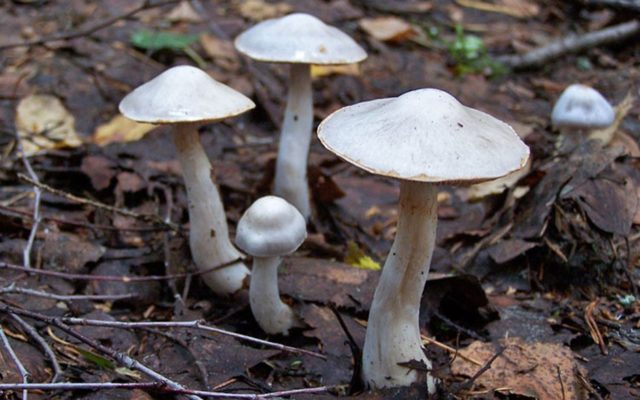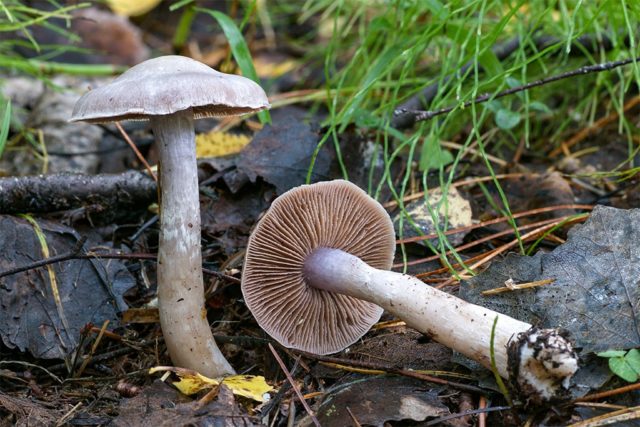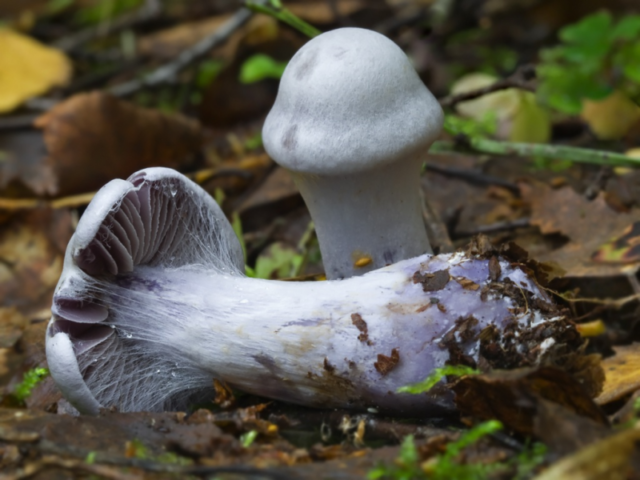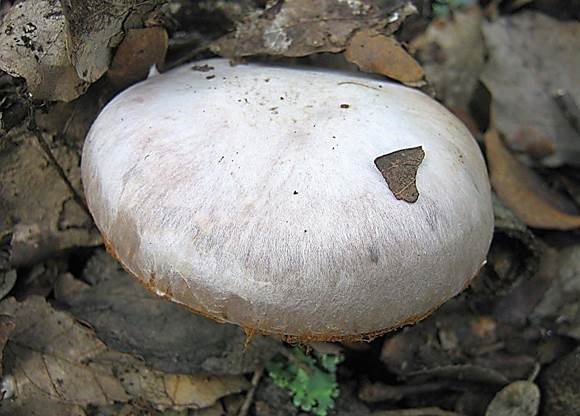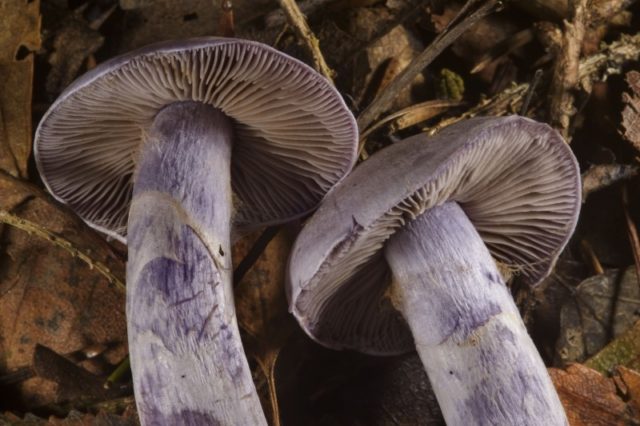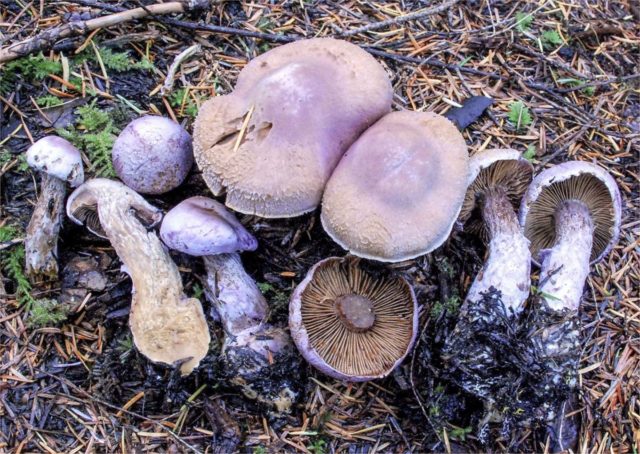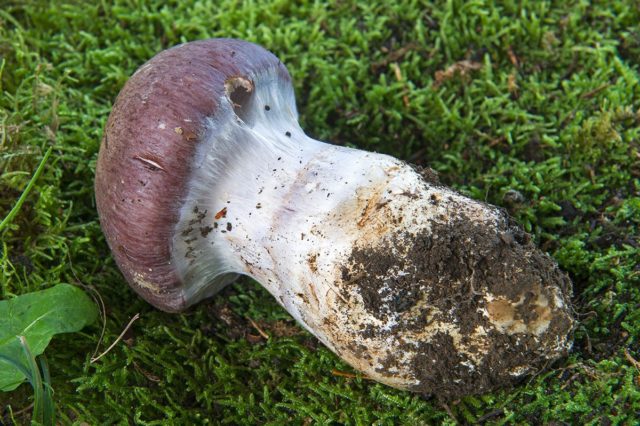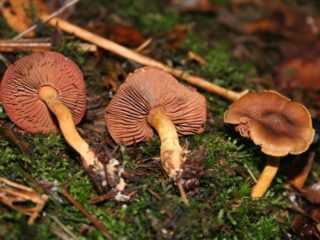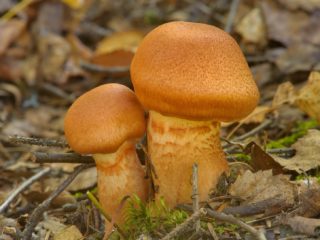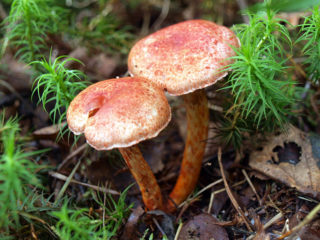Content
The white-purple webcap is a conditionally edible lamellar mushroom of the Cobweb family. It got its name because of the characteristic cover on the surface of the spore-bearing layer.
What does a white-purple spider web look like
A small silvery mushroom with a weak chemical or fruity odor.
Webcap white-purple grows in small groups
Description of the hat
In a young mushroom, the cap has a rounded bell-shaped shape, then becomes convex and convex-outstretched with a towering blunt or wide tubercle. Diameter - from 4 to 8 cm. The surface is often uneven, shiny, silky-fibrous, sticky in the rainy season. The color is at first lilac-silver or white-lilac, with growth the middle acquires a yellow-brown or ocher hue, then fades to an off-white tone.
Blades with uneven edges, narrow, rather sparse, teeth adhered to the pedicle. In young specimens, they are grayish-bluish, gradually becoming gray-ocher, then brown-brown with light edges.
In mature specimens, the plates acquire a brownish color.
The color of the spore powder is rusty-brown. The spores are small-warty, ellipsoid-almond-shaped in shape. Size - 8-10 X 5.5-6.5 microns.
The cover is cobweb, silvery-lilac; in the process of growth it becomes dense, reddish, then transparent-silky. It is attached to the leg quite low and is clearly visible in not too old specimens.
The color of the pulp is bluish, whitish, pale lilac, lilac.
Leg description
The leg is club-shaped, solid, sometimes curved, with one or more whitish, rusty belts, sometimes disappearing. The surface is matte, the color is whitish-silky with a purple, lilac or bluish tint, the top is more intensely colored. Below the girdle with mucus. The pulp is lilac. The height of the leg is from 6 to 10 cm, the diameter is from 1 to 2 cm.
A characteristic feature of all cobwebs is a bedspread on a spore-bearing layer, descending along the leg
Where and how it grows
It settles in woodlands, deciduous and coniferous forests. Prefers the neighborhood of birch and oak. Loves wet soils. Comes in small groups or singly. Forms mycorrhiza with birch.
Distributed in many European countries, in the USA, Morocco. In Russia, it grows in the Primorsky and Krasnoyarsk Territories, Tatarstan, Tomsk, Yaroslavl Regions, Buryatia.
Is the mushroom edible or not
Webcap white and purple - conditionally edible mushroom. It is suitable for eating after boiling for 15 minutes, as well as salted and pickled. The gastronomic quality is low.
Doubles and their differences
Silver webcap differs in the absence of purple hues except on the pulp in the upper part of the leg. In some sources, it is considered a kind of white-violet and, according to descriptions, practically does not differ from it. The mushroom is inedible.
Putinnik silver looks almost identical to white and purple
Webcap camphor has a similar appearance and color of the fruiting body. It is distinguished by brighter plates, dense pulp with lilac-brownish marbling on the cut, and a very unpleasant burnt odor. Grows in moist dark coniferous forests. It is considered inedible and poisonous.
The camphor species is distinguished by marble pulp
Goat webcap has a very unpleasant odor. Differs from white-violet rusty plates, more intense violet color, dry surface. Refers to inedible and poisonous.
A distinctive feature of this mushroom is the "goat" smell
The webcap is excellent... The cap is hemispherical, velvety, purple in young specimens, red-brown in mature ones. The leg is pale purple, with the remains of the bedspread. Treats conditionally edible, has a pleasant smell and taste. Not found in Russia. In some European countries it is included in the Red Book.
The excellent spider web has a dark hat
Conclusion
The white-purple webcap is a fairly common mushroom. It grows in forests of any kind where there are birches.
